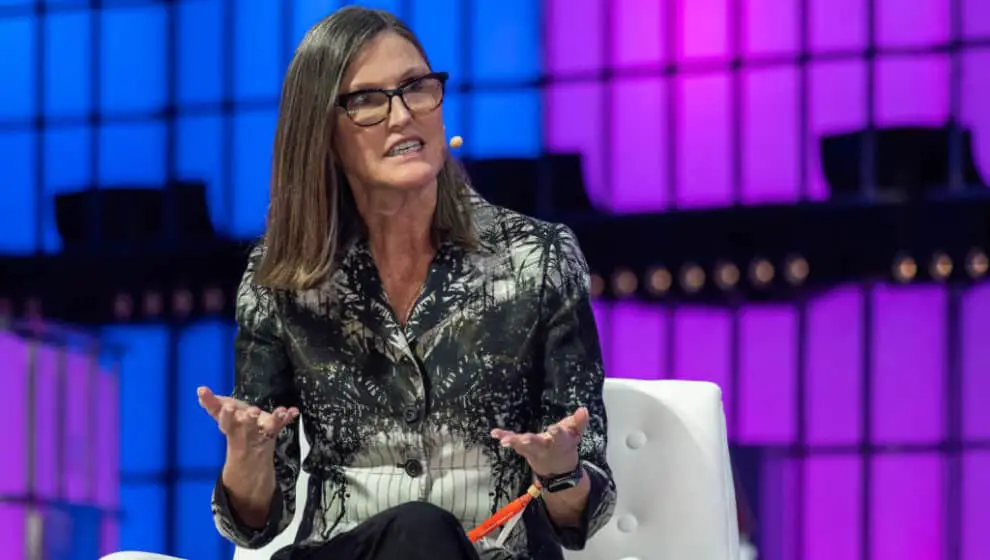Investor Cathie Wood says a pivot in federal monetary policy is necessary to avoid deflation.
Key Details
- Following the recent rally of the stock market and crypto markets, ARK Invest CEO Cathie Wood hosted a quarterly investor call on Thursday, saying that the Federal Reserve should pivot its monetary policy soon.
- Wood predicts a rapid drop in inflation by mid-2023 and warns that a deflationary market is possible if the Federal Reserve doesn’t loosen its policies quickly enough.
- “I think the Fed is close to ending this tightening move,” she says.
Why It’s Important
Cathie Wood is one of the most successful investors on Wall Street, and she has had a very successful year so far. Though her largest fund was down more than 60% last year, her firm is on the way to the most successful month on record with returns of 22%, nearing her record of 26%, Bloomberg notes. She is very talented at reading the overall direction of the economy.
The Fed has aggressively pushed interest-rate hikes to combat high inflation, increasing rates seven consecutive times in 2022 and raising rates as high as 4.25% to 4.5%, as of December.
Inflation peaked in June 2022 at 9.1% and currently sits at 6.5%. The Fed has promised to deliver rates below 2% by tightening monetary policy, which isn’t expected to happen before 2024.
Wood expects the Fed to pivot in the near future, given that its actions have lowered inflation rates as promised. She even sees growth opportunities coming out of a prospective pivot, expecting growth stocks to see a boost.
“The present value of future cash flows should be going up if we’re reversing the logic of what happened over the last year where rising rates hurt growth stocks disproportionately,” she says.
Notable Quote
Earlier this month, Wood warned that the lack of a Fed pivot could result in an economic depression. “The Fed raised rates in 1929 to squelch financial speculation, and then, in 1930, Congress passed Smoot-Hawley, putting 50%+ tariffs on more than 20,000 goods and pushing the global economy into the Great Depression. If the Fed does not pivot, the set-up will be more like 1929,” she says.
